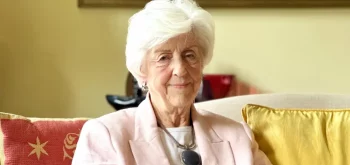The dramatic decline in newspapers’ coverage of courts was creating a ‘democratic deficit’ as well as having a negative impact on ‘open justice’, according to a new report from MPs which calls for a watchdog to report to fill the vacuum. The House of Commons’ justice committee this week made the case for the ‘re-establishment of a courts’ inspectorate’ to help identify ‘wider issues’ within the justice system, particularly in the Magistrates’ courts and the Family Court, which are ‘not well covered by the media’.
The justice committee report highlighted the ‘well-documented decline’ in the news media’s coverage of the courts. ‘In acting as the eyes and ears of the public, the media perform a vital role in keeping the public informed on the operation of the justice system,’ the report said. ‘… As the public receives less information through the media on the work of the courts, HMCTS should do more to enable the courts to communicate information on court proceedings directly to the public.’
The news agency PA Media told MPs argued that the demise of court reporting amounted to a ‘democratic deficit’. ‘If parliamentary business was conducted daily without a single journalist being there to report on it, with no sessions being recorded or broadcast live, it would be obvious to most that there would be something very wrong with that,’ it said. ‘However, there is much going on in our courts that we are not seeing or hearing about and this is largely unnoticed by the wider public.’ The fewer cases that were reported, PA argued, ‘the less aware the public is of the rule of law and the less informed they are as to whether the administration of justice is functioning as it should.’
‘Since the turn of the century there has been a transformation in the media landscape,’ said chair of the Justice Committee, Sir Bob Neil MP. ‘We no longer live in a world where national and local newspapers act as the eyes and ears of the public in the courtroom. However, digital media has so far failed to fill the gap in court reporting left by the decline in physical media. More needs to be done to address this critical gap and the loss of public understanding of how justice is applied.’
The report referenced a series of studies over the past decade providing ‘snapshots’ of the deteriorating state of court reporting. For example, a 2018 study of Bristol Magistrates’ Court found that of a total of 240 cases observed in one week only three stories appeared in the local press and only one case was actually attended by a journalist – see Phil Chamberlain writing for the Justice Gap (here).
Court reports used to be a staple of local newspapers however the National Union of Journalists (NUJ) told MPs that a number of regional dailies had not covered Magistrates’ courts at all for more than 10 years. It also reported that during the pandemic, Crown Court proceedings were ‘wholly unreported for months at a time’. While there was some good court reporting, the NUJ noted ‘the lower courts are not well covered’. According to Lizzie Dearden, home affairs editor at the Independent, the internet has changed the way that papers commissioned stories and editors’ prioritisation of court coverage had been affected by ‘their perception of its value in terms of traffic, readership and revenue’.
MPs highlighted hurdles for journalists trying to cover the courts. Sir Bob Neill reported that ‘too often, significant patience and tenacity’ was required by journalists to access court proceedings that it was ‘our democratic right to witness’. Over the summer last year the Bureau of Investigative Journalism sent reporters to 683 possession hearings in 30 county courts. ‘Our reporters attempted to attend a day of possession court hearings on 110 occasions over the two months, but on six different days we were turned away by judges who told us all possession hearings were held in private,’ the group reported. Maeve McCleanaghan, a journalist from the Bureau, told MPs that there was ‘a fundamental confusion or misunderstanding about whether we were allowed to be in those hearings’.
MPs also highlighted as ‘unsatisfactory’ the exorbitant costs of court transcripts which has been identified as a barrier for those claiming to be wrongly convicted – see here. It was a point acknowledged by the vice-president of the Court of Appeal, quoted in the report as saying: ‘the absence of relevant court records can make the task of this court markedly difficult when assessing – which is not an uncommon event – whether a historical conviction is safe’. The legal charity APPEAL gave an example of a transcript for a trial of a man whom they represented that would cost over £10,000 as the trial lasted over 60 hours and the hourly rate was £157.74 – according to another witness one court transcription service charged as as much as £360 an hour. APPEAL called on the court service to use automated speech-to-text technology as happens in Australia. The justice committee called on the court service to review its contracts for transcription services ‘to ensure that transcripts are more accessible to the media and the public’.
The report also raised concerns about the Single Justice Procedure (SJP), a fast-track process for non-imprisonable offences allowing for rulings to be made by a single magistrate sitting with a legal adviser. Defendants receive a letter informing them of the SJP and it is up to them whether they attend the hearing. MPs said that they remained concerned about SJP and had last year recommended that the Ministry of Justice review the procedure and ‘consider how the process could be made more open and accessible to the media and the public’.







